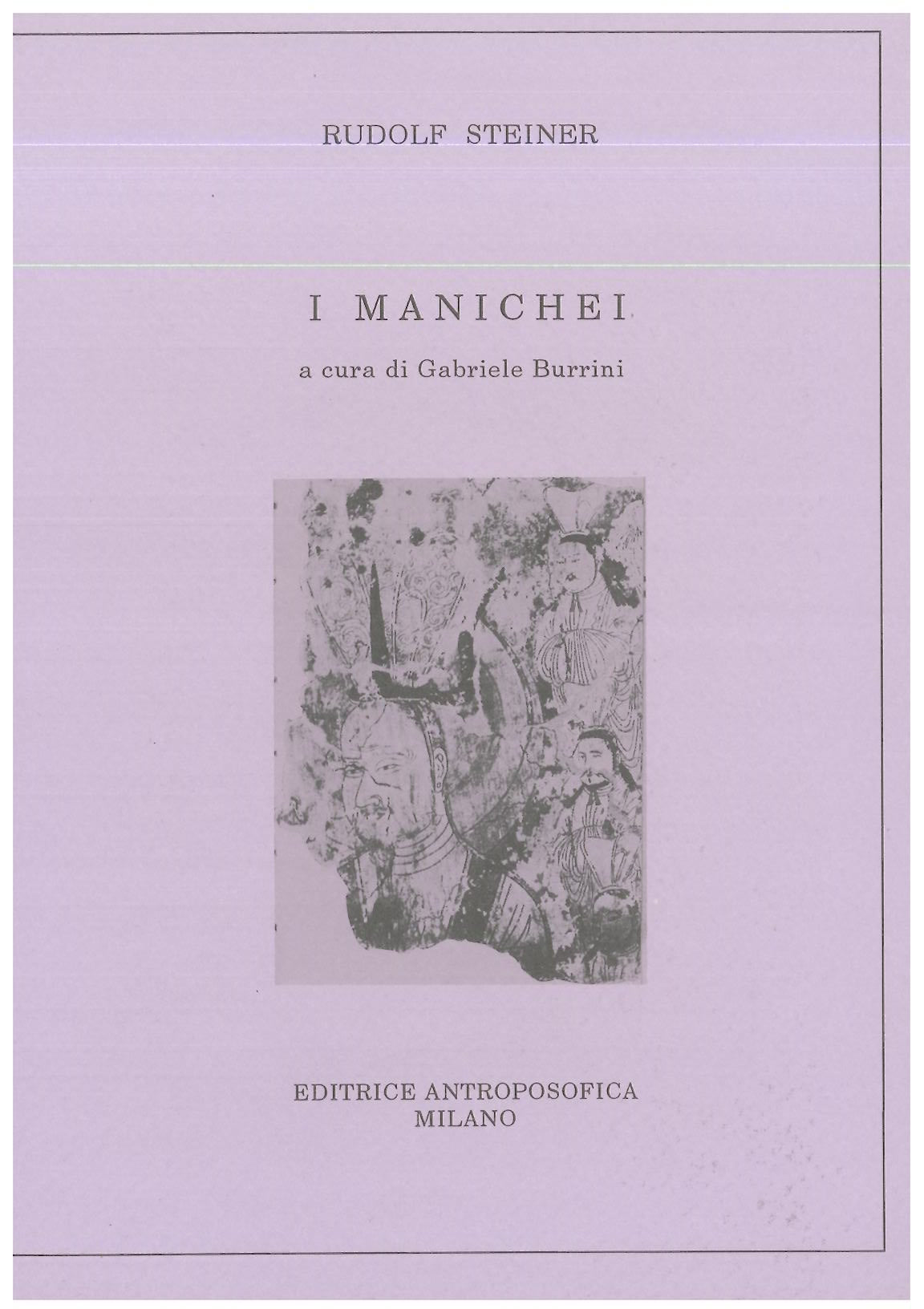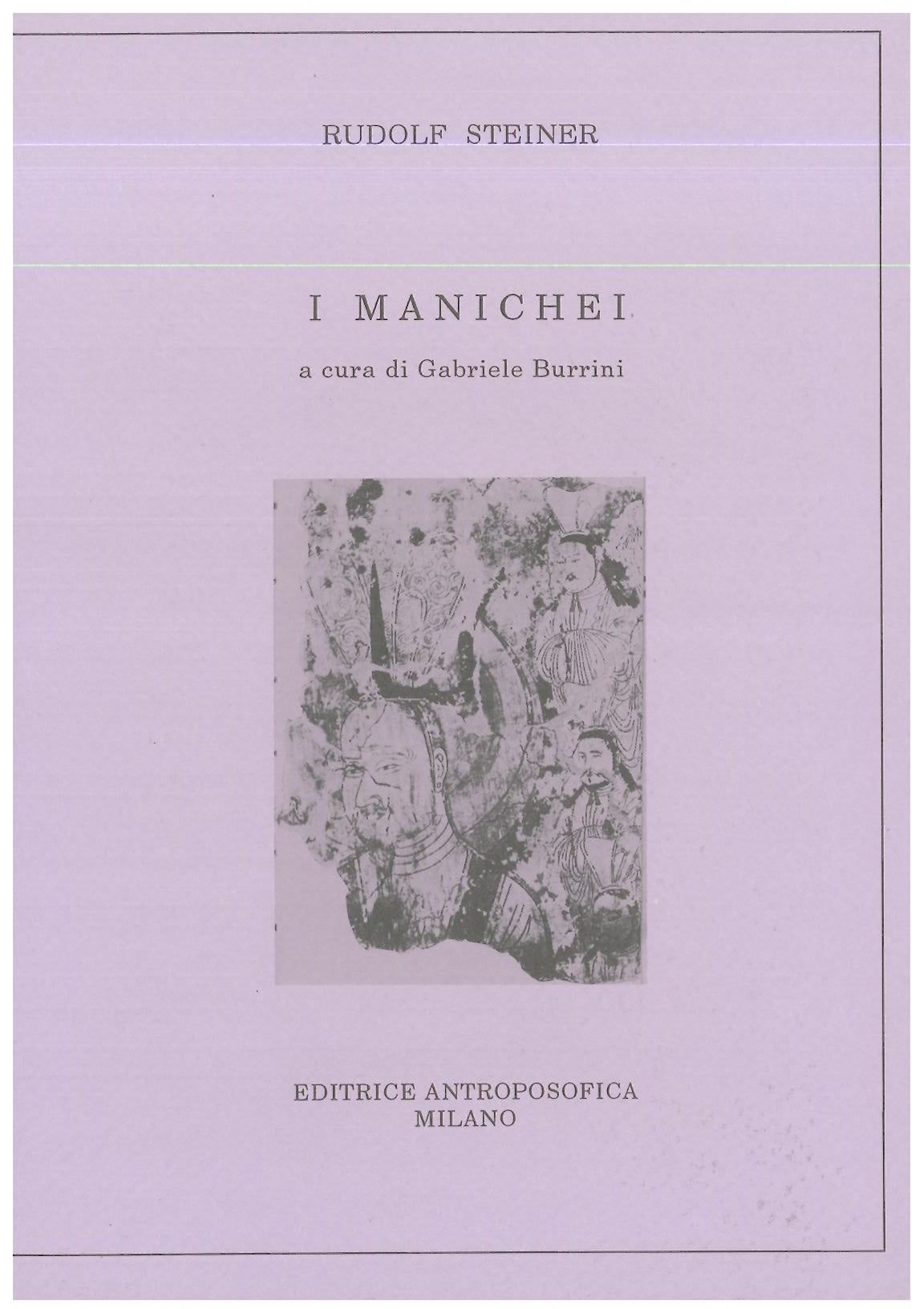93- The Manichaeans - Rudolf Steiner
Have a question?

93- The Manichaeans - Rudolf Steiner
Dettagli
1 conference: Berlin, 11 November 1904: Rudolf Steiner's only conference on the Manichaeans , to whom he attributed great importance, with numerous passages on the subject taken from different cycles.
It is often difficult to get a complete picture of Rudolf Steiner's thought on the Manichaeans and in general an idea of what they were in history, also because for many centuries Manichaean thought has come down to us largely distorted through the writings of his adversaries, first among all St. Augustine.
Also in light of the discoveries that have occurred in recent decades, and the increased interest of scholars, a fairly copious literature has developed, and consequently what Rudolf Steiner had anticipated has come to light, at least for anthroposophy scholars, namely there had been an influence of the Manichaeans on almost all the heretical movements , such as the Nestorians, the Cathars, the Albigenses, on the Rosicrucians and also on the cultural movements that in various ways contrasted the approach of the official Churches.
Manichaean thought is still very relevant today both for the way of considering the internal evolution of human individuality and for the way of counteracting evil , without fighting it head-on with force, but modifying it with gentleness in order to redeem it.
AUTHOR

Rudolf Steiner was an Austrian philosopher, architect and reformist. He was the founder of anthroposophy, an esoteric current that mixes various dictates of the theosophical and German philosophical-idealist schools of the time. From the early years of his cultural education, Steiner aspired to find the perfect synthesis between mysticism and science.
This continuous research led him, after obtaining his doctorate, to move from Vienna to Weimar to work at the Goethe und Schiller Archiv, the Goethe archive. This work allowed him to publish the essay "Introduction to Goethe's Scientific Writings" and to develop his personal vision of the world.
In 1894, he published his most important essay, "The Philosophy of Freedom", which proposed a revolutionary concept for the time: the discovery that thought can lead to the realization of the spirit of the world.
The tome did not achieve much success but Steiner had created a solid foundation for the knowledge of the spirit, and he felt able to carry out his research in this field without any hesitation. Furthermore, the work on "The Philosophy of Freedom" allowed him to solve a series of enigmas about existence that had persecuted him for some time.
The insights contained in "The Philosophy of Freedom" are the basis of Steiner's legacy and have contributed essentially to the development of modern sciences. In particular of Medicine. In fact, Steiner was responsible for the Waldorf school movement, which created an educational approach based on understanding and love.
Today, Waldorf schools are all over the world.


